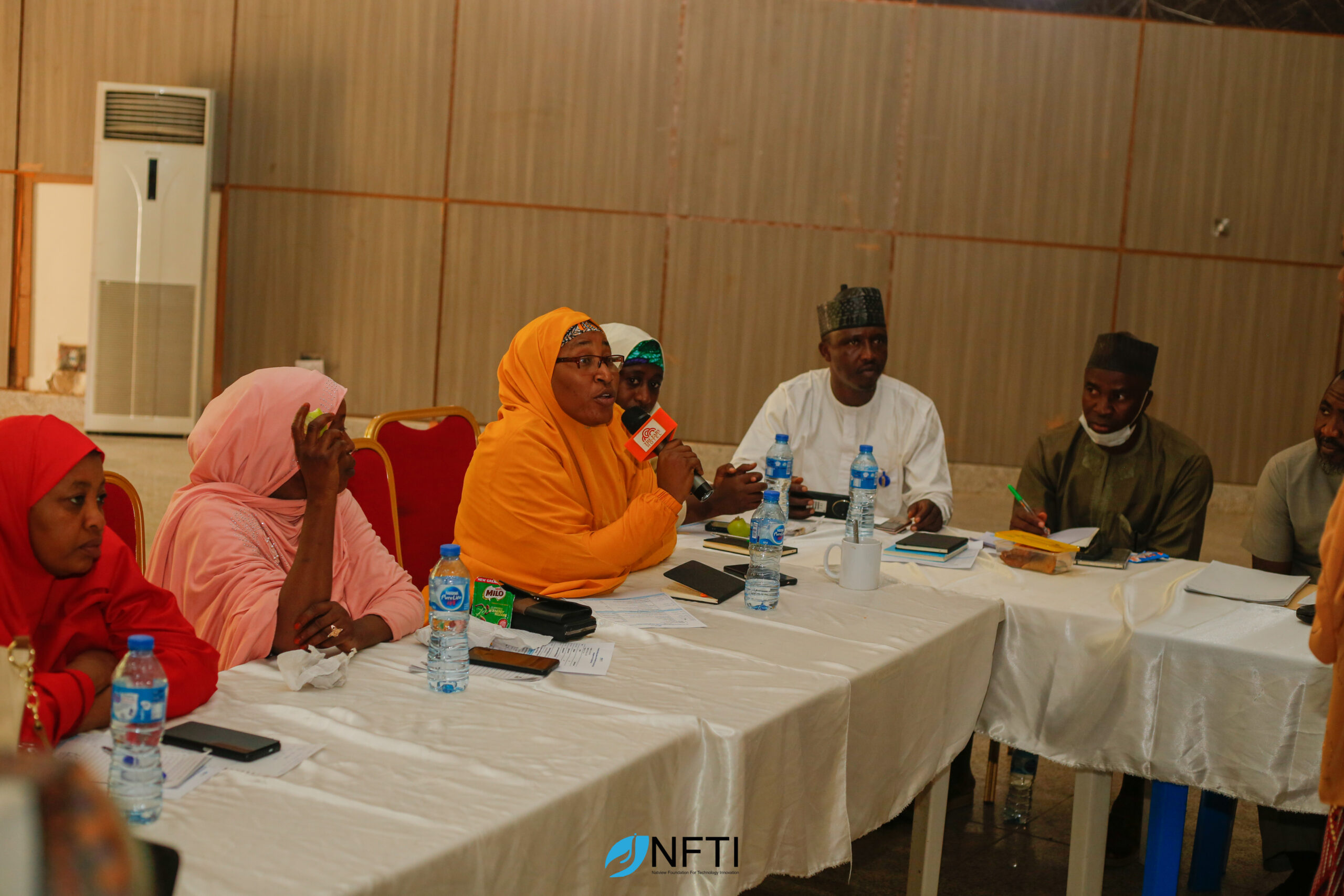Yesterday, NFTI conducted the bi-monthly briefing cadence with the Makarfi Local Government Primary Health Care (PHC) facility managers on the ongoing NFTI Longitudinal Study on Primary Healthcare Facility Readiness. The meeting commenced with opening remarks from Mrs. Asmau Alkali, wishing all participants a happy deliberation.
The session included an overview of NFTI’s work over the years, highlighting its contributions to evidence-based decision-making through operational data collection and analysis. NFTI’s Senior Program Manager, Data Analytics, Ms. Fatima Tafoki provided a comprehensive briefing on the operational data grant and the longitudinal study, outlining its objectives and the expected outcomes at the conclusion of the research. The study aims to assess and track trends in absenteeism, supply chain management, and human resources in primary healthcare facilities, PHFs, across Makarfi LGA.
A key focus of the meeting was engaging with the Officers in Charge (OICs) of the PHFs to understand their perspectives, familiarize them with the study’s assessment structure, and demonstrate how data is validated at the newly renovated Situation Room at the Shehu Idris School, a facility upgraded by NFTI to facilitate real-time data analysis.
A Health Data Analyst at NFTI, Ms. Aisha Abdulaziz led a presentation on geospatial tracking and polygonal corridors used for monitoring data collection at health facilities in Makarfi. She demonstrated how backend systems enable real-time monitoring of data champions, ensuring that the devices used for data collection function strictly within assigned health facilities. This technology enhances data accuracy and reliability while also identifying security-prone areas to mitigate risks for field officers.
The meeting served as a platform to confirm and review data collected from the field while fostering peer learning between the NFTI team and the Makarfi health officials. Discussions revolved around inconsistencies in the data, their underlying causes, and solutions to improve accuracy. Participants raised key suggestions, including the need to establish clear ground rules for data champions. One participant emphasized the importance of ensuring that the Makarfi team provides accurate information. Mr. Joshua suggested that OICs be more responsive and cooperative with data champions. Another participant highlighted the necessity of assigning competent personnel to manage facility data, ensuring that only knowledgeable individuals provide critical information. Participants agreed that the data we collect extends beyond the facilities as it is shaping policies, and the government will rely on this research for informed decision-making.
The meeting concluded with closing remarks from some participants who stressed the importance of collaboration in addressing identified issues.

